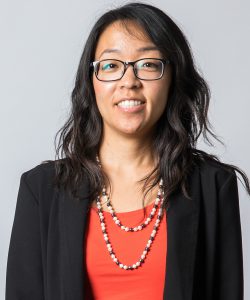Ann Y. Kim
Ann Y. Kim, Ph.D.
- Associate Professor of Human Development
- Email: Ann.Kim2@csulb.edu
- Phone: (562) 985-4930
- Office: LA3-103A
- Office hours for Spring 2024: Wednesdays 9:30-10:30am via Zoom or by appointment. Please email Dr. Kim for an appointment.
Education
- Ph.D. University of California, Santa Barbara, Education with emphases in Child and Adolescent Development and Quantitative Methods in Social Sciences
- M.A. The George Washington University, Community Counseling
- A.B. The University of Michigan, Cultural Anthropology and Psychology
Research Interests
My main research interest is identity development in adolescents and young adults. I examine identities that individuals have and their development in different settings and contexts. One area I am interested in is ethnic-racial identity development. A way I approach this topic is by asking young adults their experiences exploring other cultures. With the help of undergraduate research assistants, I have been interviewing young adults who not of Japanese heritage and are interested in Japanese culture. My next project will focus on children of immigrants interacting with ethnic-cultural materials online. Another one of my areas of interest is students who have a science, technology, engineering, and math (STEM) identity. After having reviewed many articles on the math and science experiences of young women in middle school and high school, I became convinced that scholars and practitioners were not giving the environment (the classroom, the people who surround the young women) enough attention. This was despite knowing that the environment plays a critical role in dis/encouraging young women to stay interested in and enrolled in math and science. With a colleague in the Mathematics department, I have been looking at a unique mathematics classroom to understand the interactions female students had in this environment. With Science Education department colleagues, I have begun to tackle questions around possible identity negotiation by students who enter college as STEM majors but then later switch out. Lastly, I have been interested in how students in the 21st century are utilizing the internet, a new cyberspace environment, to find help outside of the classroom.
Teaching
- HDEV 190: Elementary Statistics and Social and Behavioral Sciences
- HDEV 327: Approaches to Adolescence and Emerging Adulthood
- HDEV 320: Quantitative Methods in Human Development
- HDEV 470: Seminar/Practicum
